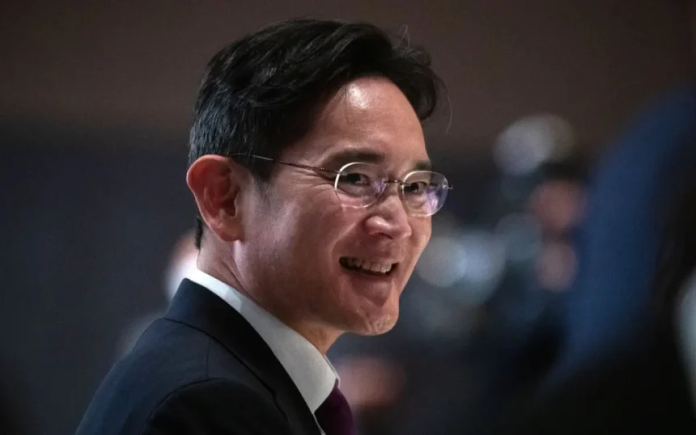South Korea’s Supreme Court definitively cleared Samsung Electronics Chairman Jay Y. Lee of accounting fraud and stock manipulation charges, removing a decade-long legal shadow over the leader of the nation’s largest conglomerate, according to Reuters.
Thursday’s ruling upheld an appellate court’s dismissal of allegations concerning Samsung’s contentious $8 billion merger between affiliates Samsung C&T and Cheil Industries in 2015, a transaction prosecutors claimed consolidated Lee’s control over the tech empire.
The verdict liberates Lee to concentrate fully on Samsung’s urgent mission to regain leadership in advanced AI semiconductor development amid intensifying global competition.
Shares in Samsung Electronics climbed 3.1% following the decision, outperforming a stagnant KOSPI benchmark. Analysts attributed this surge both to eliminated legal uncertainty and investor rotation from rival SK Hynix, whose shares plummeted 9.5% after a Goldman Sachs downgrade.
Samsung’s legal team expressed being “sincerely grateful” for the ruling, asserting it confirmed that the merger was legal. The decision arrives at a critical juncture for Lee, who faces mounting scrutiny over Samsung’s direction following a 56% plunge in projected second-quarter operating profit due to weak AI chip sales.
Business groups hailed the outcome as vital for economic stability. The Korea Enterprises Federation emphasised Samsung’s major role amid global AI competition and US trade pressures, urging renewed investment and innovation under Lee’s leadership.
Yet challenges persist: Lee spent 18 months imprisoned for bribery in a separate case involving former President Park Geun-hye before receiving a presidential pardon in 2022, with authorities citing national economic interests.
NH Investment & Securities analyst Ryu Young-ho noted the ruling “clears a layer of legal uncertainty” but questioned Lee’s future engagement:
If the owner takes a more active role, it could allow management to focus more on long-term initiatives rather than short-term results.
